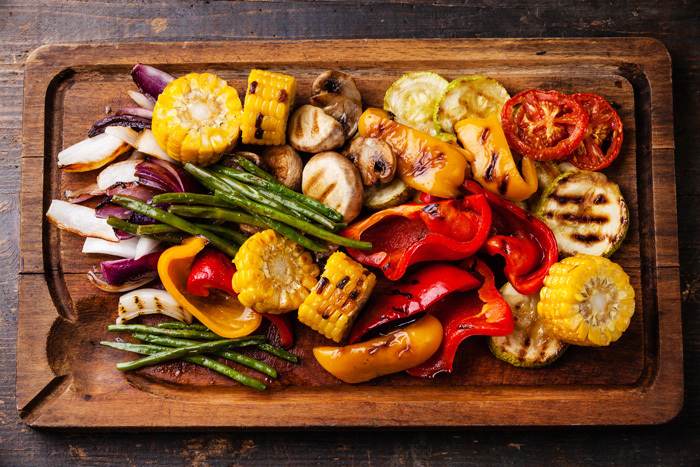Putting Food on the Table

Shopping is a community experience at Farmers on the Square, a weekly, seasonal market located just blocks from campus, where foodies can snap up goodies from the College Farm and other local vendors. Photo by Carl Socolow '77.
New food studies certificate program launched at Dickinson
by MaryAlice Bitts-Jackson
"What will we eat?” On one hand, it's a simple question about a fundamental aspect of daily life. It also opens into a burgeoning field of study that asks complex questions relating to global and national policy, law, business, medicine, cultural studies, sustainability and more. We’re talking about food studies, a discipline that critically examines problems relating to food access, production, consumption, culture and representation. This month, Dickinson became one of just a few liberal-arts colleges to offer a food studies program, and it’s a timely addition, with growing public, governmental, business and scholarly interest in the field.
The new certificate program draws on the humanities, natural sciences and social sciences to ask questions like where our food comes from, why we eat what we do and how we can create more sustainable, just food systems. Faculty members from the departments of Africana studies, American studies, anthropology, archaeology, English, environmental studies, film studies, French, history, Italian, religion, Spanish and women’s & gender studies are already on board. The first food studies course, taught by Siobhan Phillips, associate professor of English, and Jennifer Halpin, director of the College Farm, will be offered next fall.
In addition to an introductory course and four food studies related electives, students pursuing a food studies certificate must complete an experiential-learning component, such as an internship, independent study, research project or hands-on experience. They also must enroll in a capstone course, working collaboratively to organize a symposium, performance, event or other public presentation of their work.
The program is a natural for Dickinson, where an interdisciplinary approach, a global philosophy and a commitment to sustainability—all central to the study of global food systems—are woven in to the curriculum. Dickinson students, faculty and staff also have a long history of sampling food-related studies from different angles. Global food culture has flavored lessons in cultural studies and foreign languages for decades at Dickinson, and student research on sustainable agriculture has been underway at the College Farm since its founding in 2007. The Center for Sustainability Education, the Community Studies Center, the Valley and Ridge projects and the Inge P. Stafford Greenhouse also dive deep into foodways and food systems as a matter of course, and Dickinsonians have worked collaboratively on farm-to-table and food-distribution efforts through partnerships with Farmers on the Square, the local food bank Project SHARE and Gather, a pop-up restaurant launched by students and faculty.
“Food affects our everyday lives in so many ways, from what we eat to who labors to grow the food for us, to our health and ways that we care for others,” said Susan Rose, Charles A. Dana Professor of Sociology and member of the food studies working group. “There are so many faculty and students excited about the new certificate, and Dickinson has the resources and ability to influence this developing field and become an innovative leader among liberal-arts colleges.”
Learn more
Published February 15, 2016